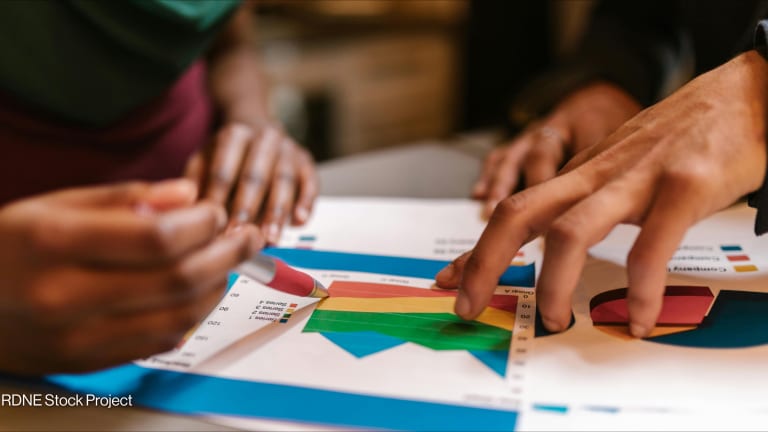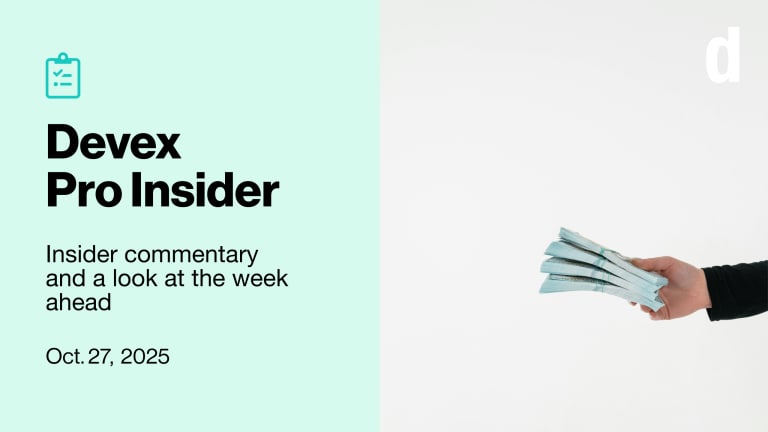
It’s no doubt that 2018 has been a tumultuous year for women. It has been a year of reckoning. It has been a year of incredible female achievement. Perhaps most significantly, it has been a year where we have seen women speaking more boldly against gender discrimination and violence.
“We show what needs to be in place for women to live full lives.”
— Beatrice Frey, head of social media, UN WomenThis month, on Behind the Handle, I spoke with Beatrice Frey, who heads up social media at UN Women, ahead of the agency’s 16 Days of Activism against Gender-Based Violence advocacy campaign, which kicks off on Nov. 25. We spoke about what it means to tell positive stories about women during a volatile time, and her hopes for the future of storytelling about women.
Frey started as an intern at the United Nations 10 years ago. When Frey was first hired, communications was run by three people. Now? It’s a team of 19. In 2008, social media was still new at the U.N. In fact, @UN was created in March 2008. Frey remembers working informally with agency counterparts to initiate an interagency working group across the U.N. that still meets today.
For Frey, the early days were about making decisions that helped her team maximize their time. “We never jumped on the Tumblr train. I always felt it was more strategic to focus on a few platforms at a time,” she said. Over the years, there were investments, such as Google+, that didn’t pan out. Now, the team experiments with caution, most recently with Instagram, which has 2 billion users, and with Snap, most popular with Generation Z — those born between the mid-90s to mid-2000s.

Bring gender equality discussions to the mainstream
When UN Women spun off from the United Nations Development Fund for Women or UNIFEM, in 2010, it was an opportunity for the agency to start fresh with their online footprint, Frey said. Her first priority was to develop and populate global pages with high-quality content. UN Women now manages over 100 social media accounts worldwide, ranging from global to regional pages. Once a year, her team audits the accounts and makes decisions on what to keep or deactivate.
On Message: Behind the Handle @Refugees
Devex speaks with head of social media, Gisella Lomax, about the @Refugees handle owned by the UN Refugee Agency.
Over the past five years, the UN Women social footprint has widened significantly, aided by the emergence of new tools such as Instagram and dialogue-friendly campaigns such as the The Autocomplete Truth video, which put a spotlight on the widespread prevalence of sexism and discrimination against women by compiling user-generated Google searches and a multimedia timeline entitled “Women’s Footprint in History” that earned UN Women a Webby Award for activism.
If you take a look at UN Women’s social accounts, you will a see a range of topics from celebrating female achievement in politics, challenging norms around sexual violence, and the contributions of women around the world.
It’s a deliberate action to fulfill the agency’s mandate to champion women’s equal participation in all aspects of life. “We show what needs to be in place for women to live full lives,” Frey said, citing the agency’s work to use their platforms to tell solutions-oriented stories. She explains that even with prevalent evidence of discrimination against women, such as that captured by the #MeToo movement, UN Women never tells a story about suffering and just end there.
Meet the @UN_Women team:
@BeaFrey
@elifgulecc
@SaysMariana
@NinaKmLd
Frey credits the leadership of Phumzile Mlambo-Ngcuka, executive director at UN Women, on creating an environment where speaking boldly on the issues of the day is encouraged.
“If you have a leader who is not afraid to push the envelope, it empowers us to do the same,” Frey said.
Driving conversations in the #MeToo era
In today’s political climate, it seems that there’s a hashtag almost every day highlighting grievances made against women. Frey’s team will often use trending topics to add a UN Women lens to the conversation. Before the #MeToo movement, there was the hashtag #HowToSpotAFeminist, a negative hashtag that UN Women was able to spin and use as a teaching moment to highlight and resurface UN Women Goodwill Ambassador Emma Watson’s speech on feminism.
This year, the #MeToo movement has inspired UN Women’s social team to encourage and amplify even more voices from around the world to participate and share their experiences, using the hashtag #HearMeToo. In addition to storytelling, offline events will be hosted globally across UN Women regional offices.
“We were created out of the women’s movement,” Frey said. “We want to be a platform that aggregates what’s happening around the world on these topics.”
Search for articles
Most Read
- 1
- 2
- 3
- 4
- 5








